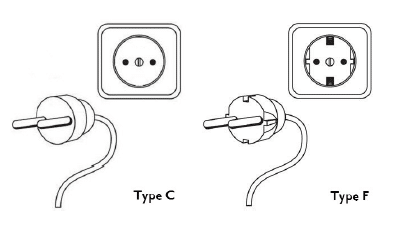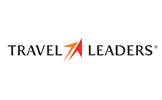BULGARIA

Fun Facts From Globus Tours
- After World War II, Bulgaria became a Communist state and part of the Eastern Bloc.
- In 1990, the Communist party of Bulgaria gave up its monopoly on power, making way for democracy and free-market capitalism.
- On March 1 every year, Bulgarians give each other “martenitsas” – small figures made of white and red threads. These figures are believed to be a symbol of the awakening of spring, health, and happiness.
- Soccer is the most popular sport in Bulgaria.
Situated in southeastern Europe, Bulgaria shares borders with Romania, Turkey, Greece, Serbia, and Macedonia. It is a small country (43,000 square miles) with a population just over seven million, but it encompasses a great variety of scenery. Bulgaria has endless beaches and forests, unspoiled countryside, and great mountain ranges.
Bulgaria was governed by the Communist party from 1946 to 1990. It became a parliamentary democracy in 1991. Exports are chiefly machinery and agricultural products. Most of its residents belong to the Bulgarian
Orthodox Church and use the Cyrillic alphabet. Famous citizens include the poet Elias Canetti and the visual artist Christo.
Bulgarian food is varied with much use of fresh vegetables and salads. Grilled meat is a favorite, and yogurt is widely used in cooking. Desserts include Baklava and pastries soaked in honey. Bulgarian wines are of high quality, and there’s a wide range of spirits, such as Slivova, Mastika, fruit brandies, and vodka.
VISAS, PASSPORTS, AND OTHER ENTRY REQUIREMENTS
Visas to Bulgaria are not required for US citizens. If you hold a passport from another country, please check with your local consulate about requirements for travel to Bulgaria. All passengers traveling internationally are required to have a passport. Please carry proper identification (your passport) on you and do not leave it in your suitcase or hotel room.
It is advisable to carry your passport with you at all times.
COUNTRY CODES
The country code for Bulgaria is 359. When calling to Bulgaria from overseas, dial your international access code (011 from the U.S./Canada), followed by the country code, area code, and phone number. Phone numbers in Bulgaria are mostly eight digits in length (including the area code). Dialing from the U.S./Canada: 011 359 + #### ####.
CURRENCY
Throughout Bulgaria, the currency is the Bulgarian Lev.
Bank hours: 9 a.m. to 3 p.m., Monday through Friday.
1 BULGARIAN LEV (BGN) = 100 Stotinki (st)
- Banknote denominations: 1 Lev; 2, 5, 10, 20, 50, 100 Leva
- Coin denominations: 1, 2, 5, 10, 20, 50 st, 1 Lev
For the most current exchange rates, please go to our website at Globusjourneys.com/Currency. Dollars and Euro in small denominations may be accepted in some outlets (change will be given in the local currency). Banks and exchange offices may refuse damaged or worn Dollar bills.
Although credit cards are accepted in larger stores and restaurants (mostly Visa and MasterCard), they should be used with caution, due to the prevalence of fraud. The economy is generally “cash-only”.
BUDGETING AND SHOPPING
The costs of items in Bulgaria are approximately half those of other European countries. The following budget guidelines are just approximate values or starting values for meals and are per person. Actual prices will vary widely by restaurant and city within a country but below are some averages as provided by our experienced personnel.
- The approximate cost of a soft drink/mineral water/coffee is 1.75 BGN.
- An average lunch consisting of a salad or sandwich and a soda or water starts at approximately 24 BGN.
- Dinner at a mid-range restaurant with dessert and a non-alcoholic beverage starts at approximately 40 BGN.
Shopping specialties: handicrafts – woodcarving/ceramics/traditional dolls, silver filigree jewelry, woolen rugs, rose oil souvenirs.
Counterfeit and pirated goods are widely available; be aware that under local law transactions involving such products may be illegal, and bringing them home may result in confiscation and fines.
Sales tax or VAT (value added tax) is included on price tags. To obtain VAT refunds (which may take up to three months to process) special forms usually have to be stamped by Customs; please ask for a taxfree shopping form with each purchase and follow the instructions for completion; not all shops may offer this service, and minimum amounts may apply. Customs import charges on items shipped home are not included in purchase prices.
TIPPING
- In restaurants, tipping 10-15%, is a reasonable amount. Check for service charges before adding gratuities.
- For a taxi, round up the fare as the tip.
- Tip hotel staff 1-2 BGN for room service.
A few coins will be needed for public toilets.
ELECTRICITY AND ELECTRICAL OUTLETS
Outlets
Voltage for outlets is 220 or 230V. North American voltage is generally 110V. Therefore, you will need a converter for your travels. Adapters will be necessary to adapt your plug into the outlet, but these may not convert the voltage, so both devices are necessary. Bulgaria uses a round, 2-prong plug that looks like:

TEMPERATURES
Bulgaria usually has four distinct seasons; hot summers, cold winters, and a mild pleasant spring and fall. To help you plan, below are average low and high temperatures for Bulgaria. To help you plan, below are average low and high temperatures for Bosnia and Herzegovina. 
To convert to Celsius, subtract 30, then divide by 2. While not exact, this simple formula will give a close estimation.
CUSTOMS and CULTURE
Be aware of cultural and behavioral differences in Eastern Europe; you may not be greeted as cheerfully as back home; smiling is generally reserved for intimate friends! So be especially wary of people presenting themselves as “instant friends” and never accept any offer of food or drink from strangers. It is not advisable to visit restaurants/bars promoted by taxi drivers or people on the street
Travelers should not photograph or film anything perceived to be of a sensitive nature, such as government buildings, diplomatic missions, border formalities, or military interests.
In order to avoid scams in restaurants/bars, ask to see the menu and prices before ordering.
Be aware that a nod of the head means NO and a shake of the head means YES!
FOOD SPECIALTIES
Grilled meat (especially pork), fresh vegetables and rich salads with yogurt as a popular ingredient, soups (including Tarator, a cold soup), Banitsa pastries with feta cheese and egg, pastries soaked in honey and Baklava, wines, spirits (Slivova and Mastika), Rakia fruit brandies, vodka.
CUSTOMS and CULTURE

Travelers should not photograph or film anything perceived to be of a sensitive nature, such as government buildings, diplomatic missions, border formalities, or military interests.
Visitors are advised to dress and behave conservatively, consistent with local custom and sensitivities.
FEW WORDS OF THE LOCAL LANGUAGE
Bulgarian (transliteration):
![]()
Good morning: Dubro utro, Good evening: Duber vecher, Hello: Zdraveyte, Goodbye: Dovizhdane, Please: Molya, Thank you: Blagodarya or Mersi (informal), Yes: Da, No: Ne, 1: Edno, 2: Dve, 3: Tri, 4: Cheteri, 5: Pet, 6: Schesst, 7: Sedem, 8: Ossem, 9: Devet, 10: Deset, Excuse me: Izvinete me, I don’t understand: Az ne razbiram, How much?: Kolko struva?, Where is…?: Kade e…?, Bathroom: Toaletna, Tea: Chay, Coffee: Kafe, Mineral water: Mineralna voda, Cheers!: Nazdrave!
U.S. DEPARTMENT OF STATE COUNTRY INFORMATION
Additional country-specific information for US citizens can be found on the US Government’s website www.travel.state.gov. Here, you can find the most up-to-date information about destination descriptions, passports/visas, safety and security, transportation, travel local laws, alerts/warnings, vaccinations, and more. For citizens of other nations, we recommend you consult your local consulate for travel information, regulations, and requirements.










